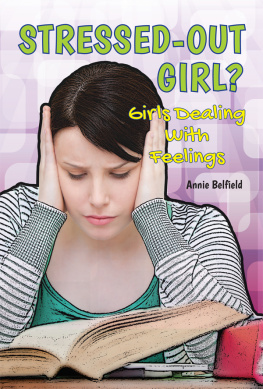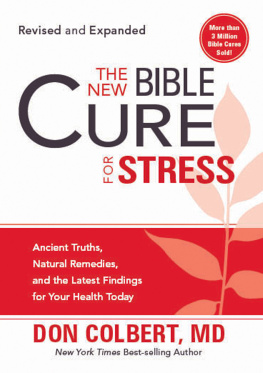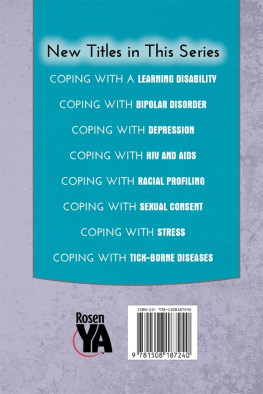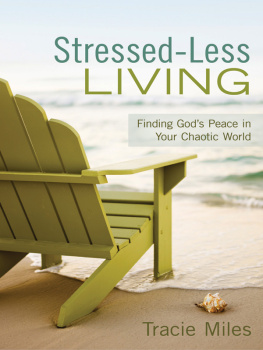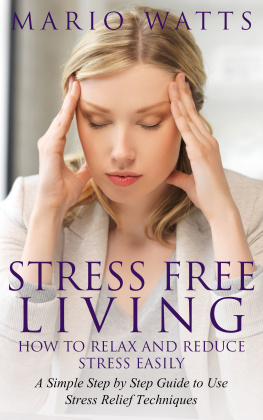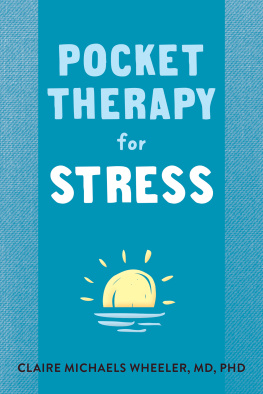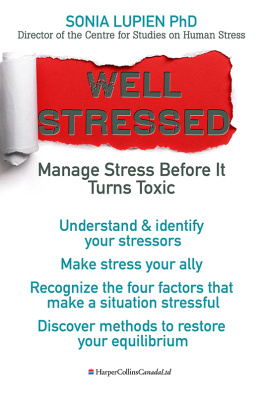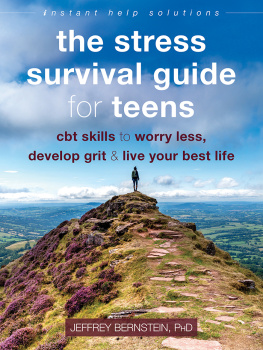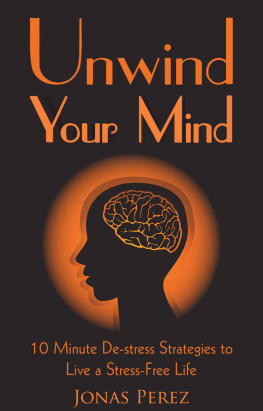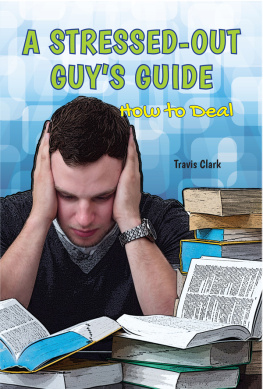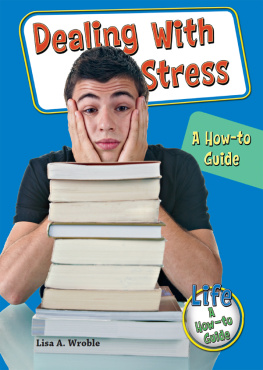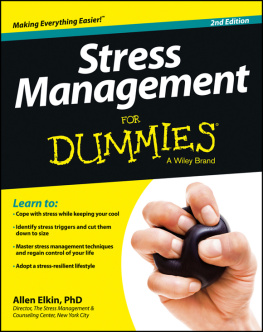Are You Stressed Out?
Common stressors for young women include family trouble, issues with friends, academic and social aspects of school, insecurity, and life-changing events that come with becoming an adult. You may feel pressure weighing down on you from several different sources and like you're losing control. Using real-life examples and quotations, Stressed-Out Girl? Girls Dealing With Feelings discusses what triggers stress and its effects on your body and mind. Take a quiz to determine your stress level, and learn healthful strategies to reduce the stress in your life.

Zoe sat nervously at her desk, tapping her pencil and chewing on her hair. The math final was today, and even though she had studied really hard, she just didnt get it. If she didnt do well, her parents said she was going to be grounded for a month. It wasnt fair.
On the day of a major exam in just about any class, youre likely to see signs of nervousness. Kids are frantically looking over their notes, biting their nails, chewing their pencil erasers, cracking their knuckles, or taking deep breaths.
In fact, you may be doing the same thing. That nervous, jittery feeling you are having is called stress. Its sourcethe testis your stressor. Even if you usually feel confident during tests, odds are youve experienced stress in other situations.
Stress is a normal part of life. Its your bodys emotional reaction to everything urgent, exciting, frightening, irritating, or significant. Depending on the situation, stress can occur when you are overly excited about something, mad at somebody or some situation, running scared, or anticipating being embarrassed or ashamed.
Stress can be positive when it pushes you to do your best at a task. For example, it can give you the mental alertness you need to do well in a major test. Or it can give you that extra physical energy in a race that propels you first across the finish line. However, stress can also be bad for you. When you have too much stressand it lasts over a long period of timeyou can feel overwhelmed and helpless. People often describe such feelings as being stressed out.
Has someone ever implied that your stress isnt important because of your age? Well-meaning adults dont always get it. You probably dont work full-time, pay taxes, or have anyone who depends on you for everything. Some adults may think this means you have no real problems. They only remember the fun times of when they were young and have forgotten the miserable moments. At this stage of life, you may be faced with difficult situations that would overwhelm anybody.
Stress isnt the most enjoyable emotion, but its not necessarily a cause for panic. The key is learning to handle your stress in a healthy way so you can control it, live with it, and maybe even benefit from it occasionally. Knowing what to expect and how to cope will help you deal with common stressors.
This book gives specific strategies and solutions to help you understand and manage your own stress. It includes information on how people respondin good ways and unhealthy waysto stressful situations. It also describes common stressorsfamily, friends, school, and life in generaland suggests ways to manage them.

- Feeling down, on edge, guilty, or tired
- Having headaches, stomachaches, or trouble sleeping
- Wanting to be alone all the time
- Not enjoying activities you used to enjoy
- Feeling resentful of others
- Feeling like you have too many things you have to do

Family trouble: divorced, separated, or remarrying parents; pushy parents who expect too much; different priorities from family members; competition with siblings.
Issues with friends: arguments; mean and catty behavior during difficult times; getting trapped in the middle of group fights; friends who need urgent help.
Academic and social aspects of school: making friends, especially when new to the neighborhood; pressure to get top grades; increasingly difficult tests and projects; too much homework; bullies.
Insecurity with self: the urge to be the best at everything; negative body image.
Change in general: new settings; loss or illness of loved ones; growing apart from friends.
Did you know that the emotions associated with stress actually cause physical changes in your body? A Hungarian scientist and physician named Hans Selye identified this response in 1936 while experimenting on mice. Although he injected the animals with various kinds of fluids, they all developed ulcers, swelling glands, and depleted immune systems. (The bodys immune system helps fight infection.) The mices bodies changed, or adapted, in the same way.
Selye called this response general adaptation syndrome. Later, as he expanded his work on general adaptation syndrome, he began referring to it as stress. At the time, physicists used the term, which comes from a Latin word meaning to pull apart, to describe elasticity.
According to a colleague of Selyes, the word strain was closer to the idea of what the researcher was trying to describe. (Strain refers to an injury to the body caused by extreme physical tension.) If Selye had been more proficient in English, people today might be talking about strain relief instead of stress relief! But the name stress stuck, and others began researching the subject as well.
So exactly how does stress affect people? Actually, its all in your headmore specifically, in your brain. The physical reaction to stress is triggered by a part of your brain called the hypothalamus. Although the hypothalamus is only about the size of a marble, it affects your entire body. This tiny region of the brain is a control center that sparks many complex chemical reactions. Among them is the release of hormonesspecial chemical substances that signal other body cells to action. In emergency situations, the hypothalamus sets off an alarm resulting in the release of two important hormonesadrenaline and cortisolinto the bloodstream. They cause changes to quickly occur in the body: the muscles tense and breathing becomes rapid.
Stress is like an iceberg. We can see one-eighth of it above, but what about whats below?
Anonymous
This stress reaction is called the fight-or-flight responseyour body is prepared to fight the perceived danger or flee from it. The fight-or-flight instinct is a natural response that dates to prehistoric times, when humans had to struggle for survival.
Although you probably dont have to face mortal danger on a regular basis today, you still experience fight-or-flight moments. The stress response can occur when your emotions cause your body to react as it would in an actual emergency, even when there is no physical danger.
Once the stressful event or threat that set off your hypothalamus alarm has passed, the levels of adrenaline and cortisol decrease in the bloodstream. Your body returns to normal.


